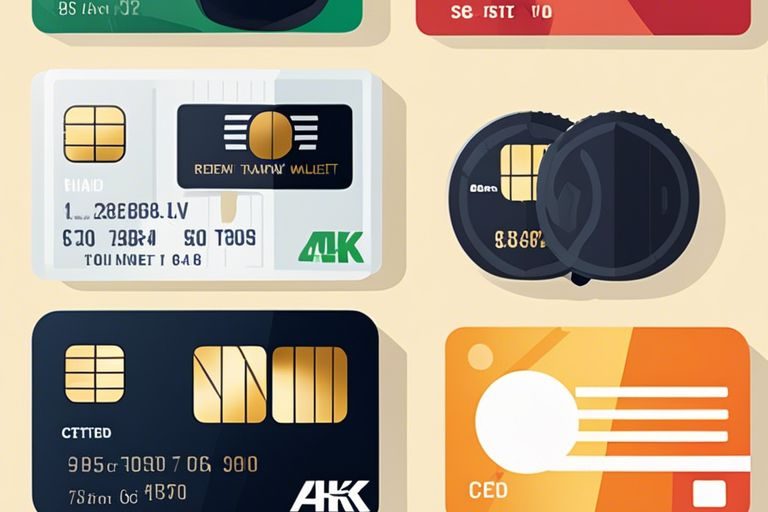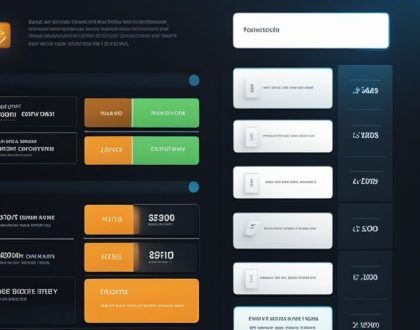Comparing Payment Methods – Pros and Cons

Many consumers face the dilemma of choosing the best #paymentmethod for their needs. Payment methods play a crucial role in our daily #financial #transactions, and it’s imperative to understand the benefits and drawbacks of each option. This comprehensive guide will examine into the pros and cons of various payment methods, empowering you to make informed decisions when managing your finances.
Traditional Payment Methods
While modern technology has revolutionized the way we make payments, traditional payment methods still hold their ground in many transactions. In this chapter, we will explore the pros and cons of these age-old methods, starting with cash transactions.
Cash Transactions
Any payment made in physical currency is considered a cash transaction. One of the biggest advantages of using cash is its immediacy and universality. Cash is widely accepted and does not require any technological infrastructure to complete a transaction. Additionally, cash transactions are inherently private and secure, as they do not leave a digital trace like electronic payments do.
Checks
Cash transaction requires the physical exchange of currency, while using checks allows for a more convenient and traceable form of payment. Checks provide a written record of the transaction, making them suitable for keeping track of finances. However, it’s important to note that checks can bounce if there are insufficient funds in the issuer’s account, leading to potential fees and complications.
Card-Based Payments
Credit Cards
The use of Credit Cards offers a convenient and often rewarding way to make payments. With a credit card, you can borrow money from the card issuer to make purchases, allowing you to pay off the balance at a later date. This can be especially useful for larger purchases or in situations where you may need some extra financial flexibility. Additionally, many credit cards offer perks such as cashback rewards, travel benefits, and fraud protection.
Debit Cards
Any transaction made with a Debit Card deducts the funds directly from your checking or savings account. This can help you manage your spending since you are limited to the funds available in your account. Debit cards are widely accepted and can be used for online purchases, in-store transactions, and at ATMs for cash withdrawals. They are a more secure option than carrying cash and can help you avoid accumulating debt.
Debit cards are a popular choice for individuals looking for convenience and ease of use in their daily transactions.
Prepaid and Gift Cards
Cards Prepaid and Gift cards function similarly in that they are preloaded with a specific amount of money that can be spent at various retailers. One of the major benefits of prepaid and gift cards is that they limit the risk of overspending since they have a set value. These cards can also be a great gifting option or a budgeting tool for personal use.
One drawback of prepaid and gift cards is that they may come with fees, such as activation fees or inactivity fees, which can eat into the card’s balance over time. Additionally, these cards may have limitations on where they can be used, so it’s necessary to review the terms and conditions before making a purchase.
Electronic and Online Payment Methods
Nowadays, electronic and online payment methods have become increasingly popular due to their convenience and accessibility. From bank transfers to online payment services, individuals and businesses have a variety of options to choose from when making transactions.
Bank Transfers
Payment via bank transfers involves transferring funds directly from one bank account to another. This method is widely accepted and is often used for large transactions such as paying bills or transferring funds between accounts. Bank transfers are considered safe and reliable, but they can sometimes be slower compared to other electronic payment methods. It is important to double-check the accuracy of the recipient’s account details to avoid any mistakes.
Online Payment Services (e.g., PayPal, Venmo)
Venmo is a popular online payment service that allows users to send and receive money quickly and easily using a mobile app. With Online Payment Services (e.g., PayPal, Venmo), individuals can link their bank accounts or credit cards to make seamless transactions. These services often provide buyer protection and offer a convenient way to split bills, pay for online purchases, or send money to friends and family.
Bank security measures can help protect users’ financial information when using online payment services. It is crucial to set up strong passwords and enable two-factor authentication to ensure the security of your account.
Mobile Payment Platforms
Mobile Wallets (e.g., Apple Pay, Google Wallet)
All mobile payment platforms offer convenient ways to make payments using just your smartphone, eliminating the need to carry physical cards or cash. Google Wallet, for example, allows users to store their credit and debit cards in one secure app and make purchases both online and in-store with a simple tap of their phone. This provides ease and efficiency for consumers looking for a more streamlined payment process.
Contactless Payments
On a broader scale, contactless payments, including mobile wallets, have gained popularity due to their speed, convenience, and enhanced security features. With contactless payment methods such as Apple Pay, Google Pay, and Samsung Pay, users can make transactions by simply tapping their mobile devices on a compatible terminal, making the checkout process quicker and more efficient.
It’s important to note that contactless payments are considered secure due to their use of tokenization technology, which generates a unique code for each transaction, instead of sharing the actual credit or debit card number. This helps protect user data and reduces the risk of fraud or identity theft.
Cryptocurrencies and Digital Currencies
Despite the traditional methods of payment, cryptocurrencies and digital currencies have emerged as alternative forms of conducting transactions. These digital currencies are based on blockchain technology, offering decentralization, security, and efficiency in financial transactions.
Bitcoin and Altcoins
An increasing number of people are investing in or using Bitcoin and Altcoins as a means of payment. These digital currencies operate independently of traditional banking systems, providing a level of privacy and security that appeals to many users. However, the volatile nature of the cryptocurrency market can pose risks to investors and users alike.
Central Bank Digital Currencies (CBDCs)
Banked by governments, Central Bank Digital Currencies (CBDCs) are digital representations of a country’s official currency. These currencies offer the potential for more efficient cross-border transactions and financial inclusion. However, the centralized control of CBDCs raises concerns about privacy and government surveillance over financial transactions.
Central banks are exploring the feasibility of introducing CBDCs to modernize payment systems and enhance financial stability. The adoption of CBDCs could revolutionize the way we engage in financial transactions, but careful consideration is needed to address regulatory challenges and ensure the protection of user privacy.
Alternative Payment Methods
Barter System
Unlike traditional payment methods, the barter system involves the direct exchange of goods and services without the use of money. This method dates back to ancient times and relies on individuals trading items they possess for what they need without the involvement of currency.
On the positive side, the barter system can be beneficial for individuals who have goods or skills to offer but may not have access to conventional forms of payment. However, it can be challenging to determine the value of items being exchanged, leading to potential disagreements or misunderstandings.
Complimentary Currencies
Any payment method that operates outside of government-issued currency can be considered a complimentary currency. These alternative forms of money are used within specific communities or groups to facilitate transactions, often promoting a sense of economic self-sufficiency.
For instance, complimentary currencies can help support local businesses by encouraging consumers to buy from nearby shops and services. However, the lack of widespread acceptance can limit the usefulness of these currencies and make them less practical for larger transactions.
Comparative Analysis and Consumer Considerations
Security Implications of Various Payment Methods
Payment methods vary in their security implications, impacting consumers in different ways. Traditional methods like cash offer anonymity but can be lost or stolen. Debit and credit cards provide more convenience but carry the risk of fraud and unauthorized transactions. Mobile payment options boast encryption and biometric security, yet data breaches remain a concern.
Credit Scores and Financial Management
Credit card usage can affect credit scores positively through responsible payment behavior or negatively with high balances and missed payments. Debit cards, on the other hand, do not impact credit scores since they are linked directly to checking accounts. Effective management of payment methods involves monitoring spending, paying bills on time, and keeping credit utilization low to maintain good financial health.
Consumers should be mindful of their credit scores and financial habits to avoid negative repercussions such as increased interest rates or difficulty obtaining loans.
Accessibility and Convenience Factors
One must consider the convenience and accessibility of different payment methods in their daily transactions. Cash is widely accepted but comes with the risk of loss or theft. Debit and credit cards offer convenience and security but may not be accepted everywhere. Mobile payments provide ease of use but require compatible technology and a reliable internet connection.
- Security features should be prioritized to protect sensitive information.
- Regularly monitoring transactions can help detect any fraudulent activity.
- Thoroughly reviewing monthly statements ensures accuracy and aids in budgeting purposes.
Though convenience is important, security measures should not be compromised for ease of use.
Merchant Acceptance and Transaction Fees
Considerations around merchant acceptance and transaction fees are crucial for consumers to make cost-effective decisions. While credit and debit cards are widely accepted, some small businesses may only take cash. Mobile payments may have lower transaction fees, but not all merchants support these platforms. It’s vital to compare fees and merchant acceptance when choosing a payment method to minimize costs.
To make informed decisions, consumers should weigh convenience, security, and fees associated with different payment methods to align with their individual financial goals and preferences.
Final Words
Conclusively, when comparing payment methods, it is important to consider the pros and cons of each option. Credit cards offer convenience and security, but they come with the risk of accumulating debt and high-interest rates. Debit cards provide easy access to funds in your bank account, but limited protection against fraud. Cash is widely accepted and helps with budgeting, but can be easily lost or stolen. Choosing the right payment method ultimately depends on your personal preferences and financial situation.
FAQs
What are traditional payment methods?
Traditional payment methods include cash transactions and checks, offering immediacy and traceability respectively.
What are the benefits of using credit cards?
Credit cards provide financial flexibility, rewards like cashback, and protection against fraud.
How do debit cards differ from credit cards?
Debit cards deduct funds directly from your bank account, promoting spending within your means without accruing debt.
What are the advantages of using online payment services?
Online payment services like PayPal and Venmo offer convenience, buyer protection, and ease of splitting bills.
What are the security implications of different payment methods?
Payment methods vary in security, from the anonymity of cash to the encryption of mobile payments, impacting consumer safety.
Recommended Posts

Payment Integration – A Technical Overview
July 3, 2024

The Ethical Dimensions of iGaming Licensing
July 2, 2024

Licensing Requirements for Online Casinos
July 2, 2024



